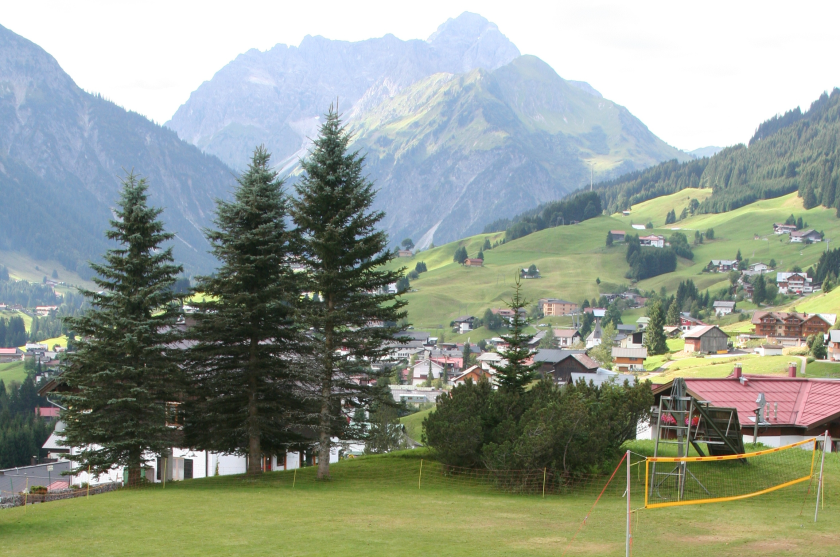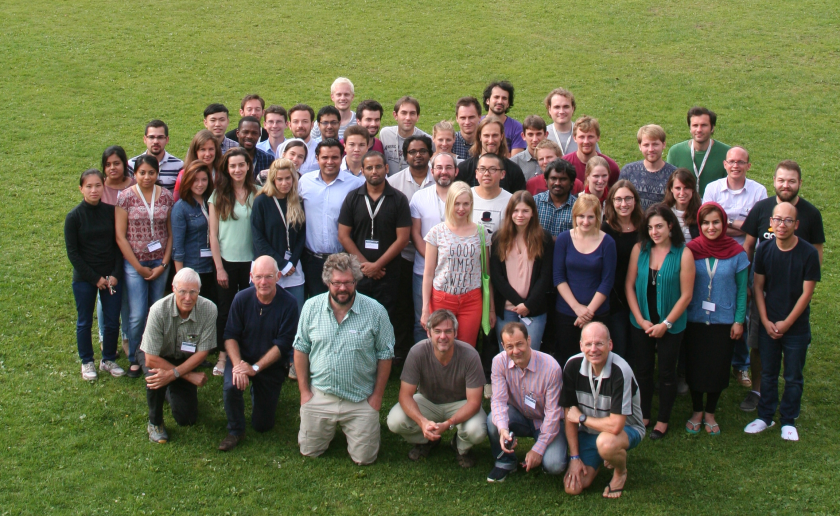Registration open for Quantsol Summer School

Learning about solar fuels and photovoltaics goes green. The summerschool takes place from 3. to 10. september 2017 in the idyllic Kleinwalsertal, Austria. © Quantsol/HZB

Last year’s Quantsol students came from all over the world. The location offers space for 56 students. © Quantsol/HZB
Newcomers and young scientists in solar energy research can register now for the 10. International Summer School on Photovoltaics and New Concepts of Quantum Solar Energy Conversion (Quantsol). The school is organized by the Helmholtz-Zentrum Berlin and the Technical University of Ilmenau and will be held from 3. to 10. September 2017 in Hirschegg, Kleinwalsertal, Austria. Applications can be submitted through the school’s homepage until May 21st, 2017.
“The Quantsol summer school offers a very comprehensive introduction to the field of photovoltaics and photocatalysis and is a great learning experience and a “must attend” for PhD students and postdocs in their early career. In the past, we have received an overwhelmingly positive feedback leading to oversubscription of the school every year” says Prof. Dr. Klaus Lips from Helmholtz-Zentrum Berlin.
Invited speakers, all internationally recognized scientists from leading world institutions, will give lectures covering topics on the fundamental principles of the conversion of solar energy into chemical and electrical energy as well as the physical and technical challenges of their technological implementation. Another focus lies on solar-specific material science and their characterization. In addition, the school will give hands-on training on how to build your own solar cell as well as an introduction to solar cell simulation.
If you are interested to participate in the Quantsol Summer School you can find much more detailed information on our homepage or in our flyer (download right).
The deadline for application is May 21, 2017. Here you get directly to the application form.
If you will not be able to attend this years’ Quantsol summer school – no worries - the next school has already scheduled for September 2 to 9, 2018.
red.
https://www.helmholtz-berlin.de/pubbin/news_seite?nid=14656;sprache=en
- Copy link
-
Green hydrogen: MXenes shows talent as catalyst for oxygen evolution
The MXene class of materials has many talents. An international team led by HZB chemist Michelle Browne has now demonstrated that MXenes, properly functionalised, are excellent catalysts for the oxygen evolution reaction in electrolytic water splitting. They are more stable and efficient than the best metal oxide catalysts currently available. The team is now extensively characterising these MXene catalysts for water splitting at the Berlin X-ray source BESSY II and Soleil Synchrotron in France.
-
Green hydrogen: ‘Artificial leaf’ becomes better under pressure
Hydrogen can be produced via the electrolytic splitting of water. One option here is the use of photoelectrodes that convert sunlight into voltage for electrolysis in so called photoelectrochemical cells (PEC cells). A research team at HZB has now shown that the efficiency of PEC cells can be significantly increased under pressure.
-
Green hydrogen from direct seawater electrolysis- experts warn against hype
At first glance, the plan sounds compelling: invent and develop future electrolysers capable of producing hydrogen directly from unpurified seawater. But a closer look reveals that such direct seawater electrolysers would require years of high-end research. And what is more: DSE electrolyzers are not even necessary - a simple desalination process is sufficient to prepare seawater for conventional electrolyzers. In a commentary in Joule, international experts compare the costs and benefits of the different approaches and come to a clear recommendation.
